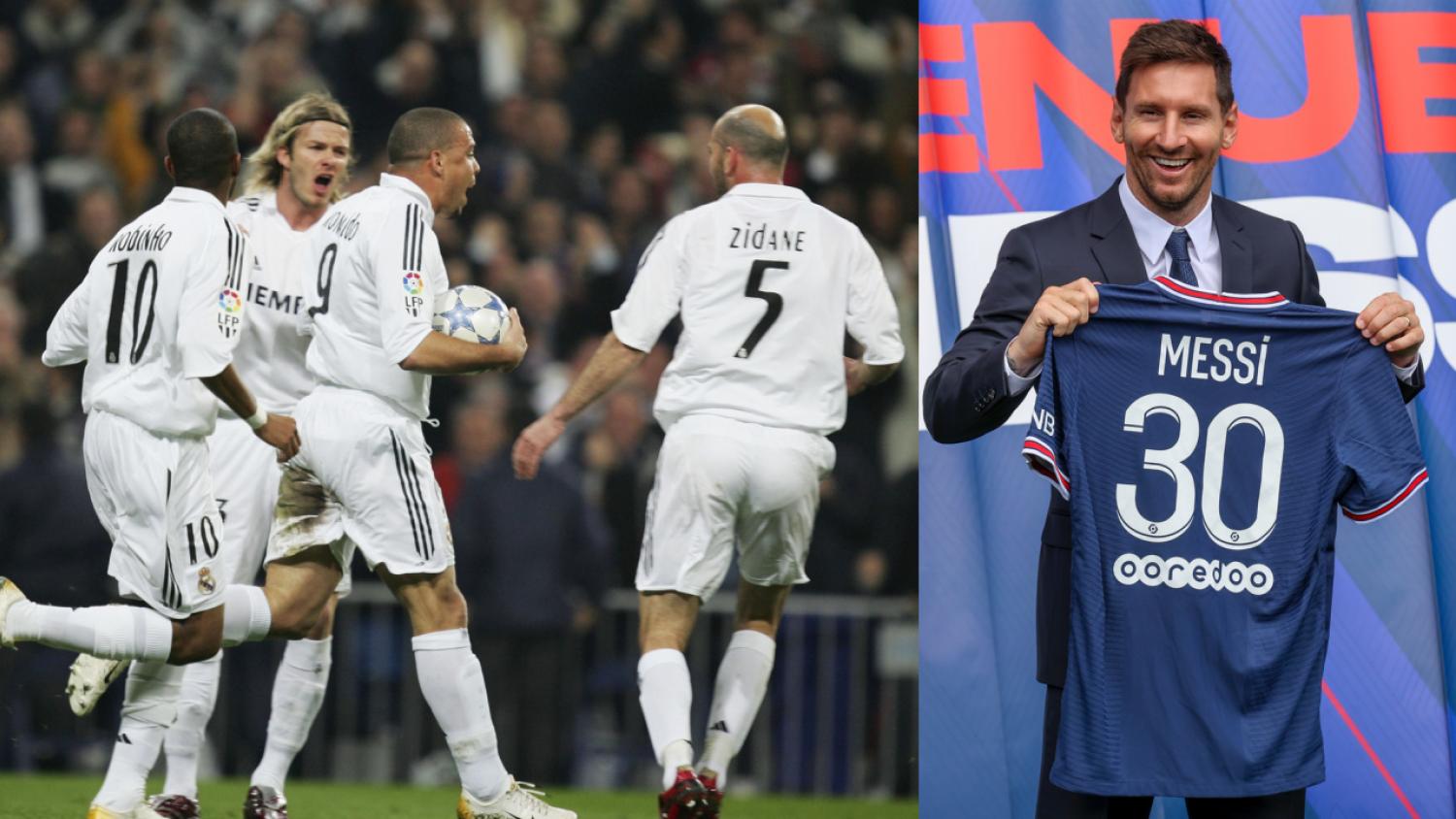Have you seen the potential Paris Saint-Germain starting lineups for the 2021-22 season? They all share two qualities: (1) they’ve got more boom boom than Charo and (2) they’re all wildly different.
All we know is that Mauricio Pochettino — previously a Marcelo Bielsa disciple whose high-press hit vertically, horizontally and everywhere in between — is now a protégé of FIFA Ultimate Team champion Fnatic Tekkz.
What will the tactics board look like at the Parc des Princes?
Messi moving centrally to shoehorn Ángel Di María into the starting lineup?
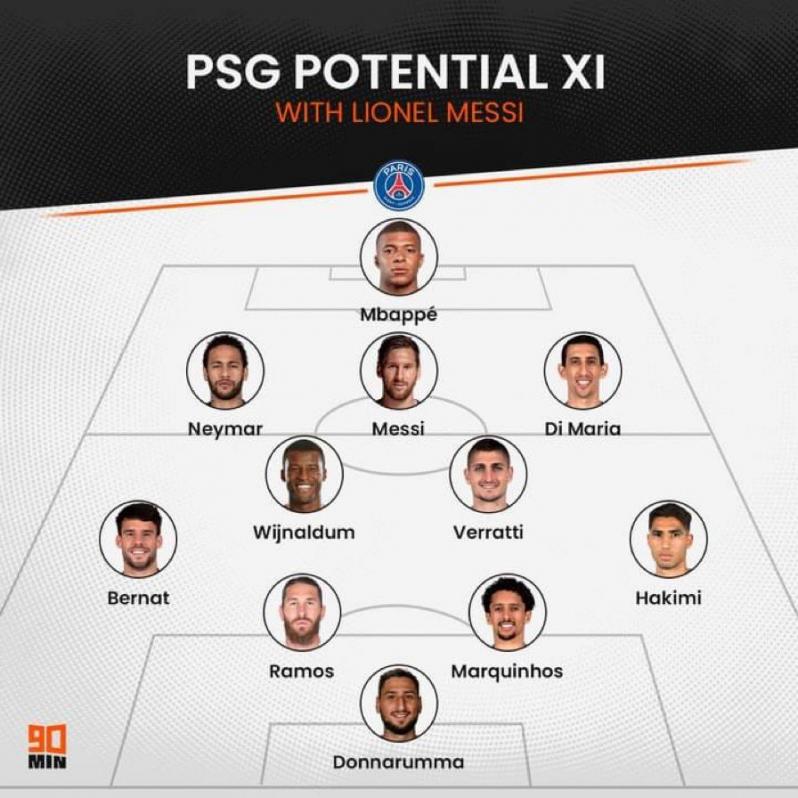
Three at the back with fullbacks providing some much-needed width?
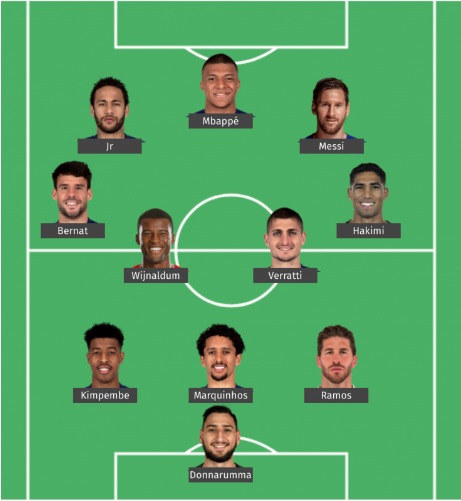
Three at the back with less defensive-minded wide players?
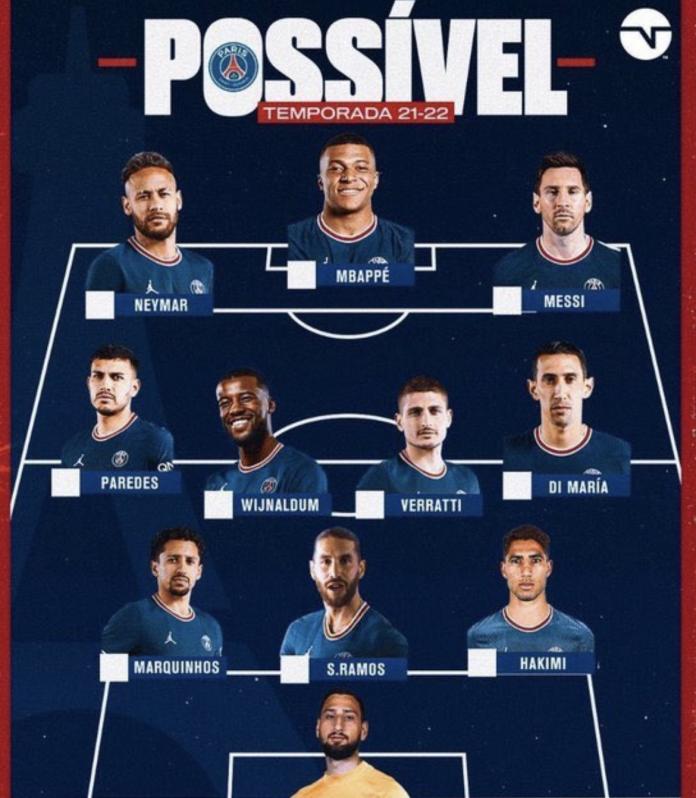
A 4-2-3-1?
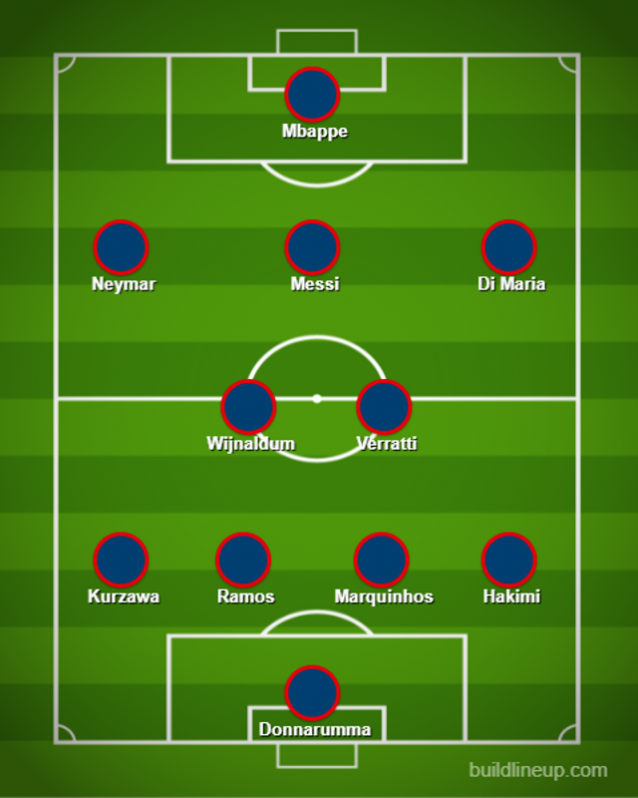
Marquinhos shifting into the holding role for more cover?
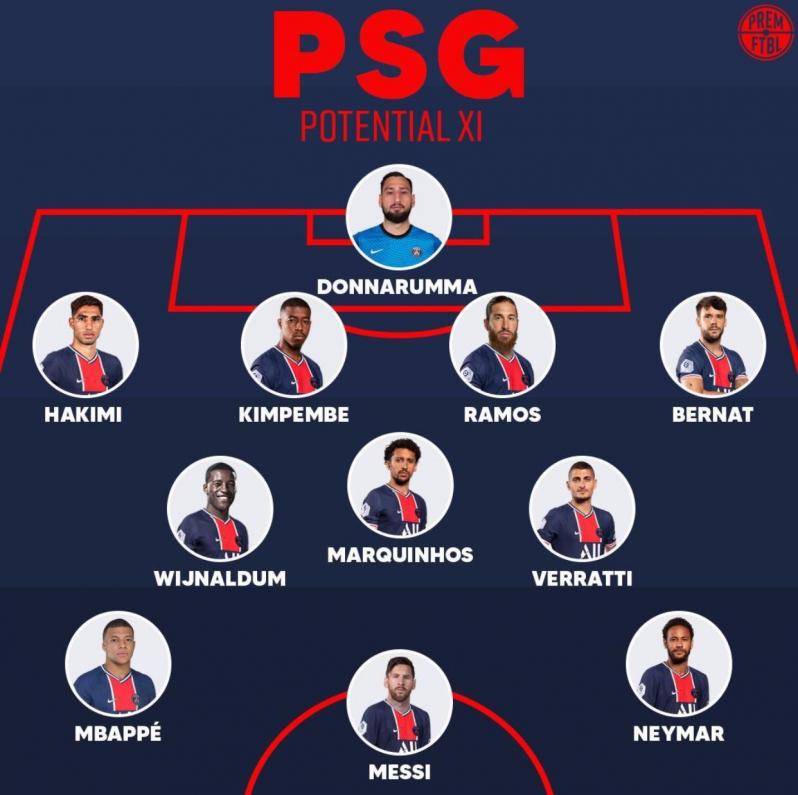
Here’s how PSG opened Ligue 1 play last Saturday — defeating Troyes 2-1 with goals from Achraf Hakimi and Mauro Icardi — and while things will get a lot more interesting with the new boys arriving, it does offer a sense of pragmatic realism with regards to how football teams must operate: as a team.
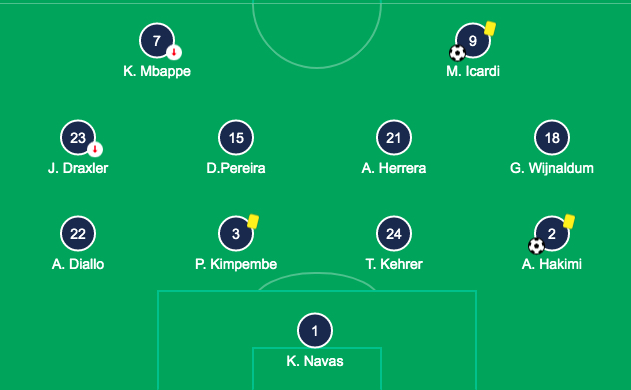
Before we hand the 2022 Champions League to PSG, let’s admit that Pochettino has plenty to navigate. This side still shows that same old penchant for brittleness that leads to Neymar gifs (first leg vs. Manchester City) and the ability to be less than the sum of its parts (Neymar in the second leg), and that highlighted UCL semifinal last season showed that other clubs still have superior midfields to PSG.
Georginio Wijnaldum’s decision to spurn Barcelona for Paris has already been largely forgotten due to the EVENTS of recent days, but the 30-year-old Dutchman is vital. All of these lineup predictions have Wijnaldum shielding alongside Marco Verratti, but we only have to turn back the clock one month to see that Verratti excelled further forward in Italy's 11 with Jorginho playing the holding role (and Nicolò Barella seemingly everywhere).
Without finding that balance and finding it quickly, you’ll be treated as poorly as Vicente del Bosque at the start of the Galácticos era.
Real Madrid and Del Bosque reached the summit in 2001-02 by winning the Champions League (aka “that Zidane volley”). That side had the foundation of the Galácticos era with Raúl, Zinedine Zidane, Luís Figo and Roberto Carlos, but it also had its share of water carriers.
Fernando Morientes was the hard-working, target forward to compliment the technical qualities of Raúl. Claude Makélélé literally defined the role of holding midfielder. Santiago Solari was a left-sided midfielder who was willing to sacrifice himself to the cause. The backline had two of the hardest defenders in the game’s history: Míchel Salgado and Fernando Hierro.
Then the time of the Galácticos began and control slipped. The next season, O Fenômeno arrived. Real conceded more goals during the UCL group stages, and that foreshadowed two of the most wildly entertaining knockout games in the competition's history: the 6-5 quarterfinal victory over Manchester United, followed by a 4-3 defeat to Juventus in the semis.
Using a midfield diamond with an exceptional amount of bite — Alessio Tacchinardi, Edgar Davids and Gianluca Zambrotta — while Pavel Nedvěd worked his magic further forward, Real’s 4-2-3-1 — with Flávio Conceição and Esteban Cambiasso in the holding roles — was overrun.
But still Florentino Perez pushed the policy forward — replacing Del Bosque with Carlos Queiroz — and the 2003-04 season also saw the departures Hierro and Makélélé while David Beckham was ushered inside the Bernabéu. Perhaps this version of Real Madrid gives us the most hope.
No team scored more in LaLiga that season, but Real also conceded 27 more than champion Valencia and finished fourth. That pattern of play was repeated in the Champions League, where Real jumped to a 4-2 quarterfinal first leg advantage over Monaco while fielding a starting 11 that included Guti, Figo, Beckham, Zidane, Raúl and Ronaldo.
In the second leg, despite leading 5-2 on aggregate with just over 45 minutes to play, Real would conceded three and crash out on away goals.
2004-05 saw the arrival of 2001 Ballon d’Or winner Michael Owen, plus a desperate attempt to paper over the cracks with the snarl of Walter Samuel, Jonathan Woodgate and Thomas Gravesen, but Real would get no further than the Round of 16 as Juve suffocated any threat of a counter and turned to a 23-year-old Zlatan Ibrahimović for inspiration in attack.
The 2005-06 season then marked a shift in transfer policy as the club targeted younger talent, including its biggest summer expenditure of $32 million on a 19-year-old kid from Seville named Sergio Ramos. The desperately sought after “Decima” wouldn’t arrive until 2014.
PSG Counterpoint: The Galácticos never had Lionel Messi.

 Home
Home